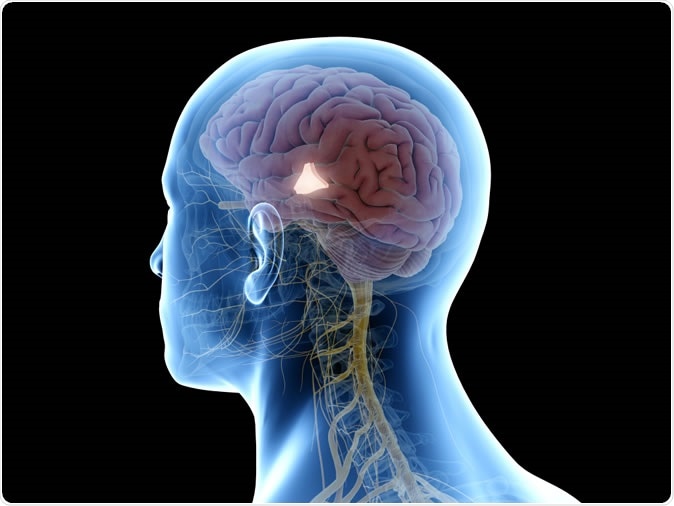Sex addiction or hypersexual disorder is a behavior characterized by an excessive preoccupation with sexual fantasies, behaviors, or urges that are hard to control, causing negative effects on one’s health and relationships.
In some cases, the bouts are compulsive, involving a variety of sexual experiences. The condition has long been ignored by doctors, even if it causes psychosocial problems. No matter how it’s called, if it’s left untreated, it can negatively impact one’s self-esteem, health, relationships, and career.
A new study may have the answer in addressing hypersexual disorder. A team of researchers has identified a hormone that can help in the formulation of new treatments for the disorder.
Published in the journal Epigenetics, the study highlights the role of oxytocin in the development of the hypersexual disorder. The condition may stem in an impaired ability of the body to regulate the hormone oxytocin.
Oxytocin is a neurotransmitter or hormone produced by the hypothalamus. It plays a pivotal role in female reproductive functions, including sexual activity, breastfeeding, and childbirth. Oxytocin also plays social functions by affecting bonding behavior and social recognition. It is also linked to trust, empathy, relationship-building, and sexual activity.

3d illustration of the hypothalamus in the human brain - Image Credit: Sebastian Kaulitzki / Shutterstock
Role of oxytocin in sexual behavior
Individuals with sexual addiction may have behaviors tied to intense sexual fantasies to the extent that it already disrupts their lives. Sexual activity stimulates the release of oxytocin and plays a role in orgasm and erection. In some studies, they have linked the connection between oxytocin levels and the intensity of orgasm.
In the new study, the researchers wanted to investigate the epigenetic regulatory mechanism behind the hypersexual disorder and determine whether it has distinct hallmarks to differentiate it from other health problems. For the past years, hypersexual disorder has been under controversy, whether it is an alone diagnosis, or it has a pathogenic explanation since it usually occurs alongside other mental health issues.
“To our knowledge, our study is the first to implicate dysregulated epigenetic mechanisms of both DNA methylation and microRNA activity and the involvement of oxytocin in the brain among patients seeking treatment for hypersexuality,” Adrian Boström from the Department of Neuroscience at Uppsala University, said.
DNA methylation patterns
There is little knowledge or evidence regarding the biological underpinnings of sexual addiction. The researchers examined the gene expressions of people with hypersexual disorder. To land to their findings, the team investigated more than 8,000 regions of DNA methylation linked to nearby microRNAs to determine any variations.
They also measured DNA methylation patterns in blood samples of 60 patients who were diagnosed with hypersexual disorder. They compared the results to the samples from 33 healthy controls.
DNA methylation can impact gene expression and function, usually acting to suppress their activity. The researchers found two regions of DNA that were impaired in hypersexual disorder patients. The findings of the study revealed that the microRNA target genes that are typically expressed at increased levels in the brain and are responsible for regulating oxytocin.
There was an alteration in the normal function of DNA methylation. A microRNA, called microRNA-4456 involved in gene silencing, has been under-expressed. Due to reduced gene silencing, oxytocin levels may be expected to increase.
"Further research will be needed to investigate the role of microRNA-4456 and oxytocin in hypersexual disorder, but our results suggest it could be worthwhile to examine the benefits of drug and psychotherapy to reduce the activity of oxytocin,” Prof. Jussi Jokinen from Umeå University, Sweden.
Umeå University and Västerbotten County Council (ALF) funded the study, with grants provided by the Swedish Research Foundation, the Stockholm County Council, the Åhlens Foundation, the Swedish Brain Research Foundation, and the Novo Nordisk Foundation.
The new study could open the door to formulate new drugs and treatments that can regulate oxytocin to normal levels. The researchers suggest that using pharmaceuticals to regulate the hormone could be a way to regulate the condition.
Journal reference:
Bostrom, A., Chatzittofis, A., Ciuculete, D., Flanagan, J., Krattinger, R., Bandstein, M., Mwinyi, J., Kullak-Ublick, G., Oberg, K., Arver, S., Schioth, H., and Jokinen, J. (2019). Hypermethylation-associated downregulation of microRNA-4456 in hypersexual disorder with putative influence on oxytocin signalling: A DNA methylation analysis of miRNA genes. Epigenetics. https://www.tandfonline.com/doi/abs/10.1080/15592294.2019.1656157?journalCode=kepi20